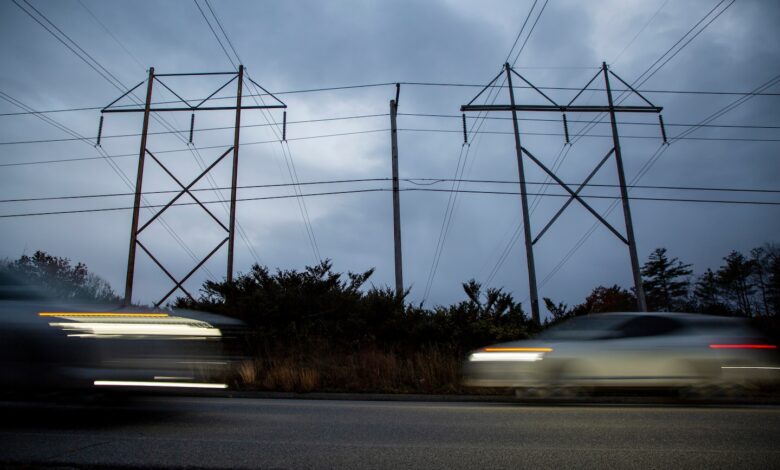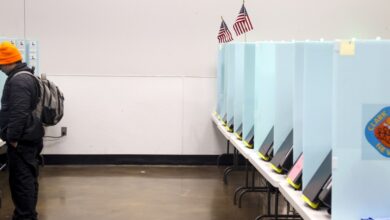Power grid again on the brink heading into winter, regulator warns

“Much of North America is at an elevated risk of insufficient energy supplies this winter and is highly exposed to risks of energy emergencies in extreme winter conditions,” the regulator, known as NERC, wrote in a statement that accompanied the report.
The power grid has traditionally faced its greatest challenges in the summer heat. But a confluence of factors in recent years has led the grid to be equally unstable during severe winter weather, NERC officials said on a call with reporters.
“We’ve seen the system become more vulnerable to winter conditions,” said John Moura, director of reliability assessment and performance analysis at NERC. “For decades, the system had been built and planned around summer peaks.”
A major concern is the potential for disruptions in natural gas generation, as power plants and the infrastructure that delivers fuel to them are destabilized by the strain of extreme cold. It is the pattern that played out last year during Winter Storm Elliott, which resulted in cascading outages throughout the eastern United States just before Christmas.
In Texas, where lawmakers vowed to fix their grid after dozens of Texans died during prolonged blackouts triggered by severe winter weather in 2021, the grid remains unstable heading into the upcoming cold season. NERC warned the state, where voters Wednesday approved a sweeping plan to fund more power generation, is at higher risk of energy shortages this winter than last because it is not bringing enough new power online to meet the state’s surging demand, and its existing infrastructure has not been adequately weatherized.
Similar challenges plague states north of Texas, according to the report. The regional grid that serves 15 states from Arkansas to Wyoming will be operating with significantly lower backup energy reserves than last year as a result of some power plants coming off line and demand for electricity in the region increasing. NERC warned that while the region has the resources it needs to make it through a normal winter, extreme cold weather could “result in shortfalls that can trigger energy emergencies.”
New England meanwhile is struggling with its own natural gas infrastructure issues that create a threat in that region, the report found. And in a number of Mid-Atlantic and southeastern states, the demand for electricity at peak times has increased, while the amount of power available “has changed little in these areas since Winter Storm Elliott caused energy emergencies across the area,” the report found.
The authors warned on the call with reporters that a winter storm of similar scale in the region could result in a repeat of the outages that disrupted last year’s holiday season for millions.
The report concludes the power grid operators are struggling to bring on new generation and weatherize equipment at the pace required to meet the challenges of increased demand and the more extreme and unpredictable weather patterns created by climate change.
“This forecast again shows that our nation faces looming grid reliability challenges while demand for electricity continues to soar,” said Jim Matheson, CEO of the National Rural Electric Cooperative Association, which represents 900 local electricity providers. “That’s unacceptable and should be cause for concern for all Americans.”
The rapid addition of renewable energy onto the grid presents its own challenges, the report warns, which could inflame debate about the extent to which the energy transition disrupts reliability. NERC officials noted, for example, that the installation of large volumes of new solar power in Texas will do little to help the state through the winter, as demand tends to peak after sundown. But NERC’s findings make clear that problems with fossil fuel generation bear a large share of responsibility for the wobbly state of the nation’s electricity system.
Some, including Matheson’s group, argued the report exposes the risks of tough new emissions rules proposed by the Environmental Protection Agency, which they say will further destabilize the system. Matheson warned the EPA proposal could have “grave consequences for an already stressed grid.” But others point to considerable research that finds the proposal does not threaten reliability and could ultimately strengthen the grid by more quickly bringing to market new technologies to store wind and solar power, which can be delivered to the grid when traditional power plants fail.
Some of the states that have been most aggressively shifting away from fossil fuels, such as California, Washington and New Mexico, were found by NERC to be have the lowest risk of power outages this winter.





